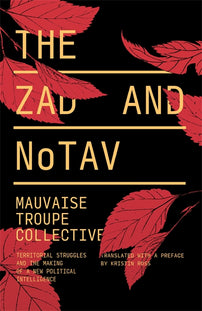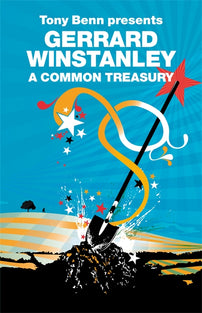Reviving the Commons: Isabelle Stengers on the Zad
The zadists should be credited not only for resisting, but for experimenting with new forms of life.

First published in L'Obs. Translated by David Broder.
This autumn, the Belgian philosopher Isabelle Stengers headed over to the ZAD at Notre-Dame-des-Landes. According to Stengers, the occupiers at this site invented forms of organization and sharing which have a great future. She thinks that rather than send in the forces of order, we should instead reflect on the means of "reviving the commons," both here and elsewhere. A philosopher of science close to Bruno Latour, her works include the 2008 book Au temps des catastrophes. Résister à la barbarie qui vient (Paris: La Découverte). She spoke to L’Obs journalist Éric Aeschimann.
How would you react to the announcement that the Notre-Dame-des-Landes airport plan has been abandoned, and that police will be deployed in order to evacuate the zadistes [ZAD occupiers] from the site?
We should not send in the forces of order, but rather honour the zadistes whose struggle allowed for a stop to be put to this absurd project. Not only should they be credited with resisting this, but they also experimented with new forms of life. So the whole question today is how we can preserve this experience.
You went there yourself in autumn
I headed over together with the American eco-feminist activist Starhawk. We had a meeting on "what comes next" and the tensions this provoked within the ZAD. For want of the struggle that previously cohered them together, the occupiers would have to face up to their differences and disagreements. They invented a way of living and acting together, which attached them to this site. So how can this experience be perpetuated? Do we really need proposals that allow the state to save face? This question has ramifications far beyond this particular site, and it is going to become ever more important in future. For months, the zadistes have been working and reflecting on the ZAD’s future, and I think that will we soon hear more about what they are proposing. So the French state should not send in the cops.
Now that the victory has been achieved, what about the ZAD is there such value in preserving?
The zadistes have been able to fashion alliances together with farmers, rediscover old construction methods, cultivate the land, and organize exchanges; they have learned how to work, and how to experiment forms of direct democracy. This notably included a fascinating reflection on their own internal conflicts, which they have never sought to deny. In short, they have together invented new relations; they have thought, they have created. In social and cultural terms, this is quite a success. A lot of young people who did not identify with current society found, in this, a place where we breathe a different air, where we learn things of real meaning. And this is precisely what we must preserve and allow to prosper. Fundamentally, what is now playing out in Notre-Dame-des-Landes is the very possibility of reviving what we call the "commons."
What do you mean by that?
In the Middle Ages the "commons" was the land which anyone could use regardless of ownership; for example, pastures or forests that belonged to the lord, but which the peasants had the open right to use: they created their own rules on how it should be used. From the seventeenth century onward the landowners set up barriers and blocked access to this land, in what were called the "enclosures." Today political philosophy is again taking an interest in the commons: for instance, the Internet can be considered an example of the commons. But when it comes to land ownership, matters are rather more complex. If Notre-Dame-des-Landes is to become "commons" we need to find the means by which those who have the right to expel the zadistes — the landowners — can be prevented from doing so. We should recognise the right of the "commons" and the right of those living there to organize, to experiment, and collectively to take care of the land they live on, just as Bruno Latour said.
But is this not an attack on private property?
Certainly it is a challenge to the type of rights we currently associate with property. The property rights invented in the modern era have become a right to abuses. Today they give multinational industries the right to speculate on land, to devastate it, to make it uninhabitable, and to make us into mere spectators impotently looking on at the "sixth extinction." As against this right to abuses, the "commons" open up the prospect of the right to share.
[book-strip index="1" style="display"]


